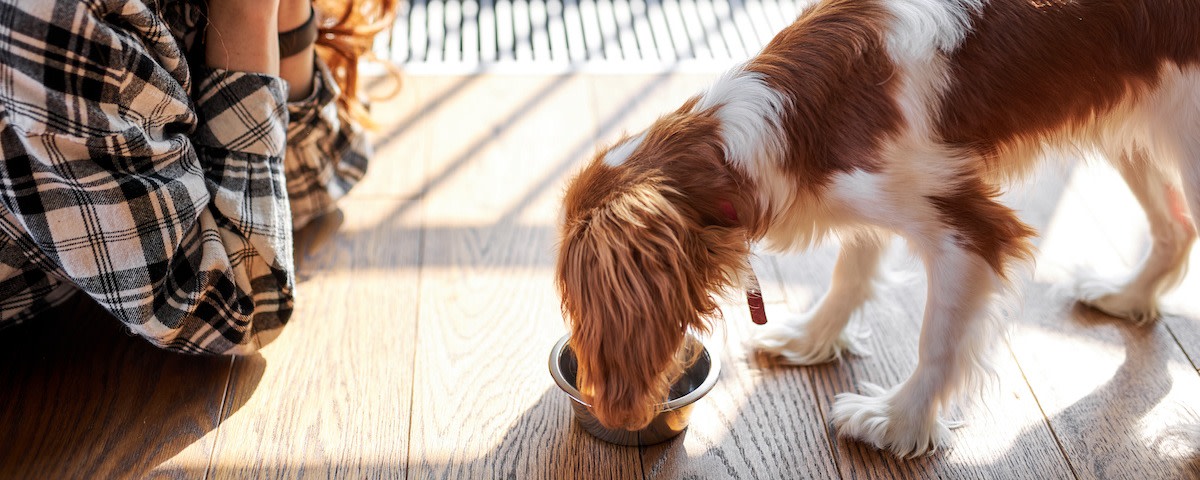Can Dogs Have Ginger Ale?
Written by MasterClass
Last updated: May 13, 2022 • 3 min read
Ginger ale is a sweet, bubbly soda known to alleviate digestive woes. But what about when your dog isn’t feeling well? Can ginger ale also settle your dog’s stomach problems? Is ginger ale safe for dogs? Find out everything you need to know about whether or not dogs can have ginger ale.
Learn From the Best
What Is Ginger Ale?
Ginger ale is a sweet carbonated soft drink, naturally or artificially flavored with ginger. Traditional ginger ale features a combination of ginger root, molasses, water, and salt fermented with whey. Commercial ginger ale, most commonly sold in grocery stores, is usually a combination of carbonated water, artificial or natural ginger flavor, and sugar or high-fructose corn syrup. You can use it as a mixer in alcohol-based drinks or drink ginger ale on its own.
Can Dogs Have Ginger Ale?
Dogs should not consume ginger ale for the same reasons you’d avoid giving them any kind of soda or carbonated drink. Though raw ginger has properties that can help settle an upset stomach and is a common ingredient in the original nineteenth-century ginger ale recipe, most modern ginger ales contain very little actual ginger.
Instead, they contain sugar and artificial flavors or artificial sweeteners (in the case of sugar-free ginger ale). Consuming too much sugar isn’t healthy for dogs, and some sweeteners, like xylitol, are toxic to dogs. In addition to the lack of ginger, the acidity and carbonation in ginger ale can make your dog feel sicker. If your dog isn’t feeling well, fasting for a few hours can help their digestive system settle.
Risks of Dogs Consuming Ginger Ale
The risks of letting your dog drink ginger ale will depend on the exact recipe. Not every ginger ale will contain harmful ingredients, but many do. Here’s what to watch out for:
- 1. Artificial sweeteners: Even at their safest, many artificial sweeteners cause gastrointestinal distress and diarrhea in dogs. Xylitol, a common sweetener, is the most dangerous to your dog and, even in small quantities, can cause seizures or liver failure.
- 2. Carbonated water: Carbonation can cause bloating in both people and dogs. If your dog already has an upset stomach, carbonation can make them feel even more uncomfortable.
- 3. Citric acid: This highly acidic additive gives ginger ale its tart zing but is highly corrosive, especially to your dog’s teeth.
- 4. High-fructose corn syrup: High-fructose corn syrup (HFCS) is a popular sweetener because it tastes sweeter than sugar, allowing manufacturers to use smaller quantities to achieve the desired taste. This cost-effective alternative to natural sugar can cause spikes in your dog’s blood sugar levels, which can be especially dangerous for dogs with diabetes. Too much HFCS can also cause obesity.
How to Feed Ginger to Your Dog Safely
Though it’s best to avoid serving your dog ginger ale, you can safely feed them small amounts of raw ginger. Fresh real ginger root has anti-inflammatory properties that can improve your dog’s health by promoting healthy blood circulation, potentially lowering blood pressure, easing bloating, reducing joint pain, and increasing heart health. Here’s what to keep in mind:
- 1. Go fresh. When giving your dog ginger, always serve them fresh ginger root. Prepare it by skinning the ginger, and mincing, grating, or grinding the root into small pieces. Here’s how to grate ginger properly.
- 2. Consider your dog’s size. Give small dogs (under thirty-five pounds) no more than half a teaspoon and larger dogs (over thirty-five pounds) between three-quarters and a full teaspoon of finely chopped fresh ginger. Large quantities of ginger in your dog’s diet may cause side effects such as gas, nausea, or heartburn, so it’s best to start with a small amount of ginger and observe how they tolerate it.
- 3. Add it to food or treats. Mix the ginger into either wet or dry dog food, or bake the ginger into ginger dog treats. If your dog doesn’t like the taste of raw ginger, brew some ginger tea by boiling a few slices of ginger in water, then pouring the tea over your dog’s food for a less intense flavor.
Before Sharing With Your Pooch
Certain human foods can cause adverse reactions in canines, so always consult your veterinarian to determine whether it is safe to add these foods to your pet’s diet. This article is for educational and informational purposes and is not a substitute for medical or dietary advice.
Want to Learn More About Training the Goodest Boy or Girl?
Your dream of having a dog who understands words like “sit,” “stay,” “down,” and—crucially— “no” is just a MasterClass Annual Membership away. The only things you’ll need to train up a well-behaved pup are your laptop, a big bag of treats, and our exclusive instructional videos from superstar animal trainer Brandon McMillan.
